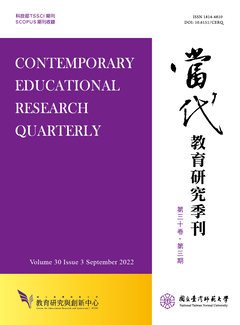

Using the pilot program of teacher evaluation for professional development (TEPD) as an object, this study employed statistical control technique and theory-driven evaluation to assess the program impact. Administrators and teachers in primary and secondary schools attending the program were surveyed. Program components, including program supporting system and program activities, as well as program outcome, were covered in the data analysis. It was found that "training and communication" was the highly implemented program component, better than the other three components: "teacher discussions and self-assessment," "peer assessment and teacher growth," and "consultation and guidance." And the enhancement of teaching was the most obvious outcome observed, the score of which was higher than the advancement of evaluation cognition and the change of school ecology. In addition, in order to examine the program impact, three groups reflecting different degrees of program implementation were classified firstly using statistical control technique. Significant differences of program outcomes were found among the three groups. Secondly, it was revealed from the theory-driven evaluation analysis that both the supporting system and program activities significantly predicted program effects. In conclusion, this study not only used a new method of impact assessment distinguishing its features from the traditional experimental design but also identified the program components which are essential to effectively achieve the goal of TEPD program.

This work is licensed under a Creative Commons Attribution-NonCommercial 3.0 Taiwan License.
Center for Educational Research and Innovation, National Tawain Normal University
162, Ho-Ping East Rd, Sec. 1, Taipei, Taiwan | Tel:+886-2-7749-3670 | E-mail: cerecerq@gmail.com
CERI | NTNU | E-mail Alerts | Open Journal System
© 2014 CERI-NTNU
